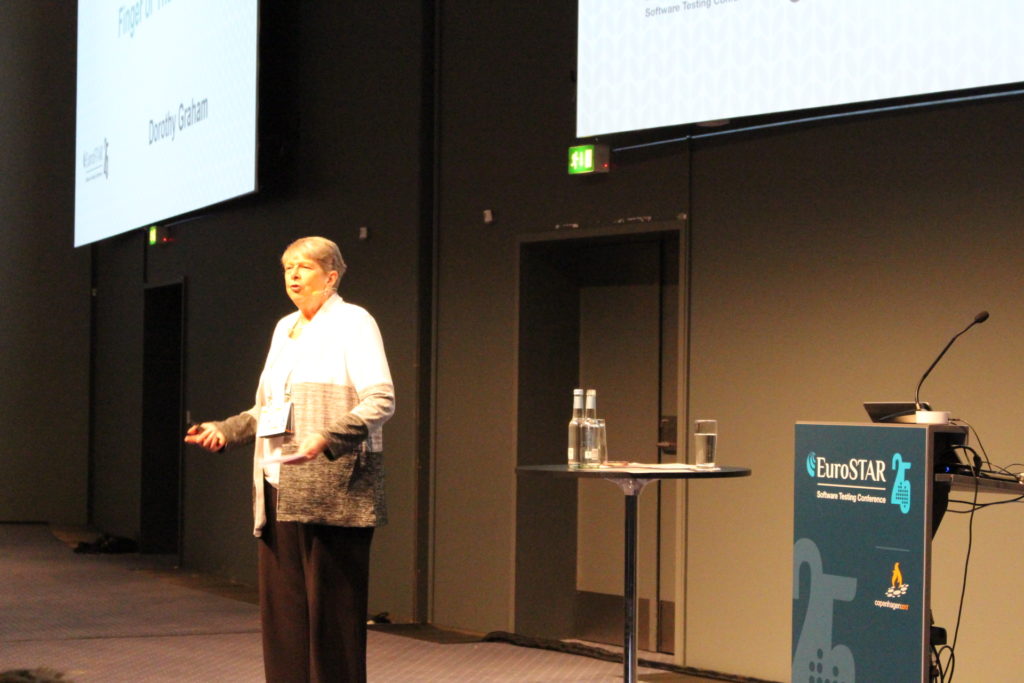Going to the second day of the conference is easier than going there the first day. You know how to get there … you have tested the route to Bella Centre and you roughly know what to expected. This day started of almost like a routine. Coffee. Breakfast. Metro. Bella Centre. Key Note.
Copenhagen and Eurostar feel really comfortable by now.
When writing this, the second conference day is well underway. We have had lightening strikes, a key note, two morning track talks, lunch and one afternoon track talk. I soaked up a lot of information and it is time to back out for a while and start processing my notes into this blog post to prevent an information overload at the end of the day.
Testing is Simple
Testing is one simple word. However, it entails a broad array of tasks, which demands diverse skills and which can have a lot of impact on a product and on a team. A fearless Michael Bolton created a bold rap about it. Testing is something that can shift left, can be left to developers, can be automated, can be integrated and can be taken into your private life and then you can make a nice presentation about it and present it to the test community. Whatever your interest is, you can find it at EuroSTAR. How many presentations are programmed at EuroSTAR? The obvious answer after this morning is some.

I think I see patterns in all the information that I soaked up so far. Thankfully, because a pattern implies there’s structure in the seemingly diverse topics. Hurray! It also helps me to write about it and to better remember the messages from the speakers.
Critical Thinking
One pattern that I see repeated by various speakers concerns critical thinking. Critical thinking is a must-have skill for testers as testing is about also checking for the unexpected and that requires an inquisitive, critical mind: the tester’s mindset. The tester must question the information, look for black holes, find the loopholes and the fallacies. This was repeated in slightly different words, but with a similar message: the testers are the project investigators. And that, by the way, will always be a valuable role. So remember keep investigating until an invisible friend (a bot) can take over that part in the future, if ever.
Testers, besides your critical thinking and investigating duties, you furthermore have to be, or become, fearless. Dare to make mistakes, as long as you and your team learn from that instead of blame each other. Creativity and productivity will flourish in a fearless and a non-blaming culture. And of course, let your imagination flow to make your jobs a magical experience instead of a thrill ride.